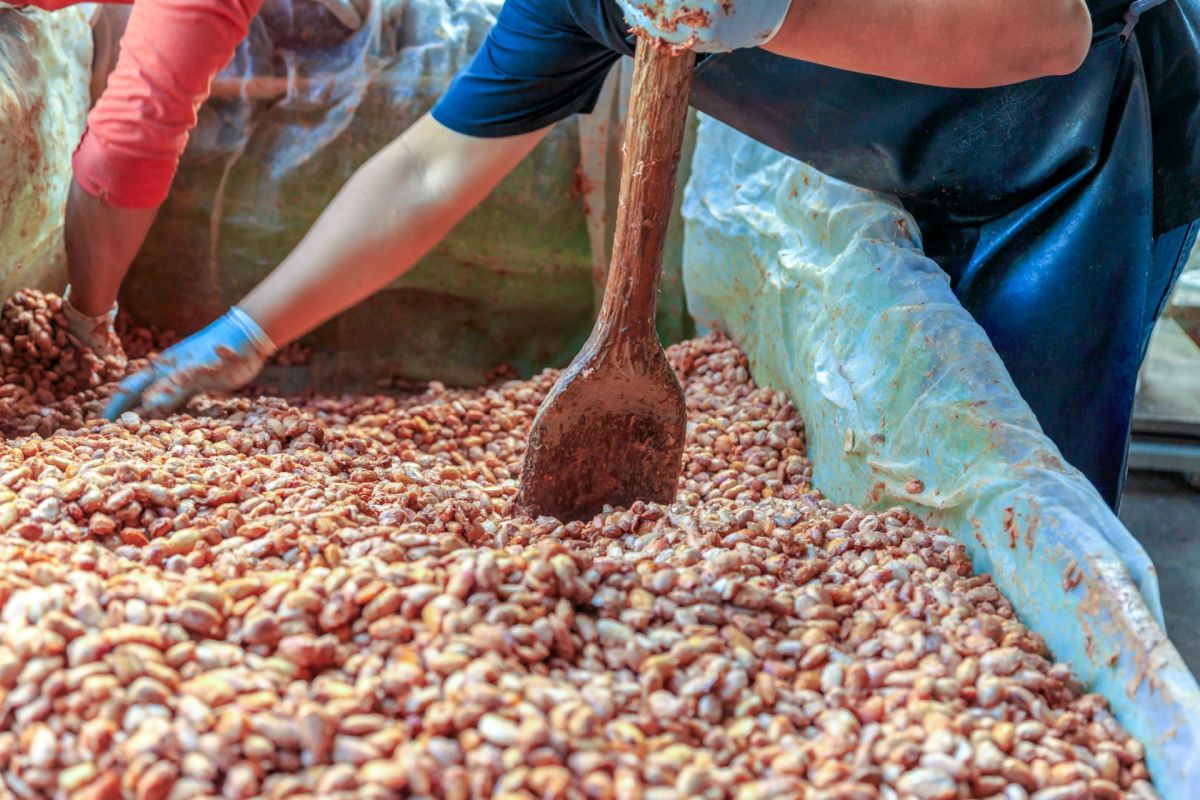A novel way to counter climate change is taking place in the German port city of Hamburg.
It's a process that begins with cocoa bean shells going in one end of a factory and coming out as a black powder called biochar, which is doing its part to slow climate change.
What is biochar?
Biochar is a black powder also known as "black gold," and it's produced by — in this case — heating cocoa husks in a room that has no oxygen to a temperature of 1,112 degrees Fahrenheit, according to Phys.org. Biochar producers can also use other organic wastes as raw materials.
The process prevents plant-warming toxic gases from entering the atmosphere, and the final product can be turned into fertilizer or an ingredient for concrete that is environmentally friendlier than traditional concrete, per Phys.org.
How does the process work?
Biochar captures the carbon dioxide present in the husks of the cocoa shells from the European plant mentioned above, and this method can be implemented by any other facility.
If the cocoa shells were discarded conventionally, the carbon within the unused byproduct would be released into the atmosphere during its decomposition.
Rather than following the usual disposal method, where the carbon within the unused cocoa shells would be released into the atmosphere, which heats up the planet, it is instead stored in the biochar for a very long time.
David Houben, an environmental scientist at the UniLaSalle Institute in France, told Phys.org that the biochar could hold onto the planet-warming gas for centuries.
Why is biochar important?
The United Nations' Intergovernmental Panel on Climate Change (IPCC) says that biochar could potentially capture billions of tons of the environmentally damaging gases released by our species every year.
This is important because human activities, such as electricity production and transportation, spew around 77 billion tons of planet-warming gases into the atmosphere each year. So far, this warming has triggered an increase in heatwaves, floods, droughts, and forest fires over the past few decades.
Some experts believe implementing renewable energy to reduce the amount of planet-warming emissions into the atmosphere isn't enough and that it may already be too late to prevent the most damaging effects of a warming planet.
That's why carbon sequestration, or the process of removing the planet-warming gases we've already injected into the atmosphere, is considered so important by many climate experts, and the use of biochar does exactly that.
However, the production of biochar is still difficult to scale up to the levels where it could actually slow the overheating of the planet.
"To ensure the system stores more carbon than it produces, everything needs to be done locally, with little or no transport. Otherwise it makes no sense," Houben, the environmental scientist, told Phys.org.
However, even though challenges remain, the number of biochar initiatives is increasing rapidly. As reported by Phys.org, the production of biochar is expected to nearly double this year compared to last year.
Join our free newsletter for easy tips to save more, waste less, and help yourself while helping the planet.







